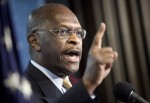When a gaffe is more than a gaffe
June 10, 2012 4 Comments
 I’ve written here before about messaging gaffes, whether they come from the principal himself or herself, an authorized surrogate or anyone else. They force you to waste time and resources explaining what happened (or “revising and extending,” in Washington speak), rather than conveying the message you want to convey. They make you look disorganized, weak and untrustworthy.
I’ve written here before about messaging gaffes, whether they come from the principal himself or herself, an authorized surrogate or anyone else. They force you to waste time and resources explaining what happened (or “revising and extending,” in Washington speak), rather than conveying the message you want to convey. They make you look disorganized, weak and untrustworthy.
One type of gaffe is even more damaging – a gaffe that reinforces a preconceived notion many share of you. Mitt Romney, the presumptive Republican nominee for President, committed such a gaffe earlier this year. And President Obama, trying to hang on to his job, committed one last week.
Speaking at a White House press conference on the economy, President Obama pointed to the gains – albeit very sluggish gains – in private sector employment since the economy bottomed out. He noted that while the economy itself has a ways to go, that “the private sector is fine.”
In the words of Carl Lewis, “UH OH!”
Let’s put aside for a moment the fact that saying the private sector is fine is a stretch at best, especially given the last two months’ unemployment reports (though it is true that public sector job cuts are responsible for a lot of the still languishing unemployment rate). More important are these realities:
1. Most people perceive the economy to still be bad (and in a lot of ways it is).
2. President Obama is perceived by many to be out of touch and incompetent on the economy.
Perception is very often reality. Because of perception #1, this gaffe reinforced perception #2. The President and his aides had to spend the rest of the weekend walking back his remarks. And you can expect this sound bite to get replayed frequently over the remaining months of the campaign, especially if the economy continues to languish or (even worse) slide backward.
In a lot of ways, this gaffe is worse than the one I mentioned from the Romney camp. While Romney’s gaffe certainly makes him seem unlikeable and ill-equipped to relate to middle class Americans, Romney’s campaign is not based on likeability. Mitt Romney is not George W. Bush or Ronald Reagan, and, fortunately for him, he realized during the primaries that he couldn’t pretend to be so. What Romney emphasizes is competence and the idea that his private sector expertise will translate to getting the economy turned around as President.
Whether or not Romney’s message is true in reality is an entirely different question. But it paints the starkest contrast to an incumbent who inherited a rotten economy and is perceived (again, rightly or wrongly) to have made it worse. Obama’s gaffe, much like John McCain’s similar “the fundamentals of the economy are strong” gaffe during the 2008 campaign, makes him look oblivious to the problem, let alone to be the person who can best solve it.











